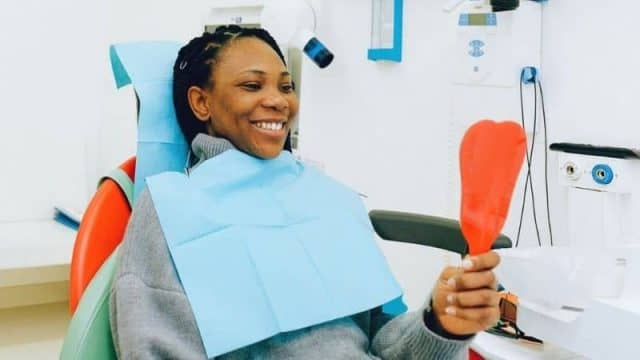Advertiser Disclosure
How to Pay off Dental School Loans: A Guide for Dentists
Updated On October 12, 2021
Editorial Note: This content is based solely on the author's opinions and is not provided, approved, endorsed or reviewed by any financial institution or partner.

There are many paths to pay off dental school debt. Today, according to the American Dental Education Association, dental school student loans can average almost $300,000 for each borrower. What are the best ways to pay off dental school debt?
Here are five strategies to pay off dental school debt:
- Explore dental school student loan forgiveness
- Choose an income-driven repayment plan
- Refinance dental school student loans
- Make extra student loan payments
- Don’t defer your dental school student loans during residency
1. Explore dental school student loan forgiveness
If you work as a dentist in public service or for a non-profit, you may qualify for student loan forgiveness or student loan repayment assistance programs.
The Public Service Loan Forgiveness program offers student loan forgiveness after 120 monthly payments if you work full-time for a qualified non-profit or a public service employer. The advantage of public service loan forgiveness is that you can receive federal student loan forgiveness after 10 years of qualifying payments. The disadvantage is that you may earn a lower income during this period compared to working in private practice, for example.
There also may be other opportunities for student loan forgiveness from state governments, dental organizations and other foundations and non-profits. If you don’t work in public service, you can still receive student loan forgiveness for your federal student loans for dental school after 25 years of monthly payments. Importantly, you would income tax on the amount of student loan debt that is forgiven. In contrast, if you get student loan forgiveness through public service loan forgiveness, there is no income tax liability.
2. Choose an income-driven repayment plan
An income-driven repayment plan helps dentists lower their monthly dental school loan payments for federal student loans. Income-driven repayment plans are best for dentists or residents who are struggling to pay student loans.
There are four types of income-driven repayment plans:
- Income-Based Repayment (IBR)
- Pay As You Earn (PAYE)
- Revised Pay As You Earn (REPAYE)
- Income-Contingent Repayment (ICR)
The advantage of income-driven repayment plans are that you can lower your monthly payment for your federal student loans and get student loan forgiveness after 25 years of monthly payments. Monthly payments are based on discretionary income, family size and state of residence.
The disadvantage of income-driven repayment plans is that your student loan balance can grow significantly. While your monthly payment may decrease, your student loan balance increases because interest still accrues.
3. Refinance dental school student loans
Student loan refinancing can save you tens of thousands of dollars on your student loans. If you work in private practice, and have a stable monthly income, then refinancing student loans could be a great option. Student loan refinancing can get you a lower interest rate, which can lower your monthly payment and limit the amount of interest that accrues.
When you refinance federal student loans, you won’t have access to student loan forgiveness programs such as public service loan forgiveness or income-driven repayment. However, the cost savings from student loan refinancing can be significant.
How much money can you save with student loan refinancing? This student loan refinancing calculator shows you how much money you can save.
For example, let’s assume you have $300,000 of student loan debt, an8% interest rate and a 10-year repayment term. If you refinance dental school debt with a 3% interest rate, you can lower your monthly payment by $743 and save $89,161 total.
4. Make extra student loan payments
One way to pay off student loans faster is to make an extra student loan payment. Student loans have no prepayment penalties, so you can pay off dental school debt anytime with no penalty. When you make an extra student loan payment, you can pay any amount. Any time you get a signing bonus, annual bonus, tax refund or any other one-time payment, you can use that money to make a student loan payment. You can either make a one-time, lump-sum payment or increase your regular monthly payment.
This student loan payment calculator shows you how much you can save when you make an extra student loan payment for your dental school debt.
For example, let’s assume that you have $200,000 of dental school student loans, and an 8% interest rate and 10-year repayment term. If you pay an extra $200 each month, you would save $11,106 total and pay off your student loans 1.08 years earlier.
5. Don’t defer dental school debt during residency
Many residents decide to defer dental school debt during residency. Specifically, they choose to defer federal student loan payments, which pauses student loan payments. Why? The goal of deferment is to save money each month. This can be especially helpful if your salary is relatively low, which is the case for most residents.
However, unsubsidized dental school debt still accrues interest, which can grow your student loan balance. If you have $300,000 of dental school debt and defer your student loan payments for three years, you could owe more than $40,000 of additional student loan interest.
Ideally, even if your salary is low, try to make student loan payments at least to cover the accrued interest.
